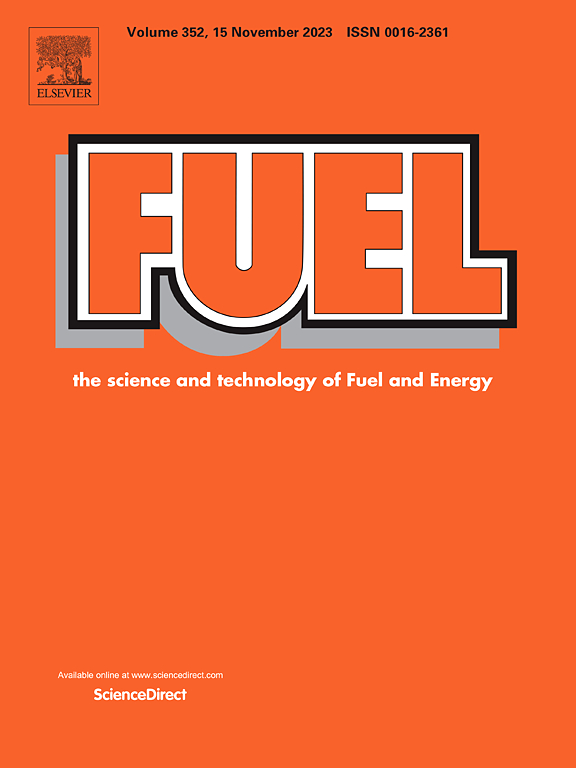二氧化碳水合物对岩石渗透性影响的数值和实验研究
IF 6.7
1区 工程技术
Q2 ENERGY & FUELS
引用次数: 0
摘要
在低压储层注入二氧化碳时,焦耳-汤姆逊效应导致温度降低,再加上水的存在,会形成水合物,进而降低岩石渗透率,进而降低二氧化碳注入率。本文介绍了一种经验模型,用于评估水合物形成对二氧化碳注入井注入率的影响。还进行了实验来验证该模型。然后使用该模型模拟了向多层枯竭气田注入二氧化碳的情况。结果表明,操作参数,尤其是二氧化碳注入速度和温度,对水合物的形成有很大影响。这是因为较高的二氧化碳注入率会导致注入井内的压降增大,从而可能引发有利于水合物形成的条件。研究还表明,干燥锋和温度锋之间的竞争动态对多孔介质中水合物的最终饱和度起着重要作用。在蒸发率较大的情况下,水的蒸发会降低井筒附近的水饱和度,从而限制水合物的形成。本文章由计算机程序翻译,如有差异,请以英文原文为准。
Numerical and experimental investigation of impact of CO2 hydrates on rock permeability
The reduction of temperature caused by Joule-Thomson effect during injection of CO2 in low pressure reservoirs combined with presence of water can lead to formation of hydrates, which in turn reduces rock permeability and hence CO2 injectivity. This paper introduces an empirical model to evaluate impact of hydrate formation on injectivity of CO2 injection wells. Experiments were also conducted to validate the model. The model was then used to simulate injection of CO2 into a multi-layered depleted gas field. The results indicate that operational parameters, particularly CO2 injection rate and temperature, have a large influence on hydrate formation. This is because a higher CO2 injection rate leads to a greater pressure drop within the injection well, potentially triggering conditions conducive to hydrate formation. It is also shown that the dynamics of the competition between the dry-out and temperature fronts play an important role in the final saturation of the hydrate within porous media. For large evaporation rates, the evaporation of water reduces water saturation near wellbore and hence formation of hydrates is limited.
求助全文
通过发布文献求助,成功后即可免费获取论文全文。
去求助
来源期刊

Fuel
工程技术-工程:化工
CiteScore
12.80
自引率
20.30%
发文量
3506
审稿时长
64 days
期刊介绍:
The exploration of energy sources remains a critical matter of study. For the past nine decades, fuel has consistently held the forefront in primary research efforts within the field of energy science. This area of investigation encompasses a wide range of subjects, with a particular emphasis on emerging concerns like environmental factors and pollution.
 求助内容:
求助内容: 应助结果提醒方式:
应助结果提醒方式:


